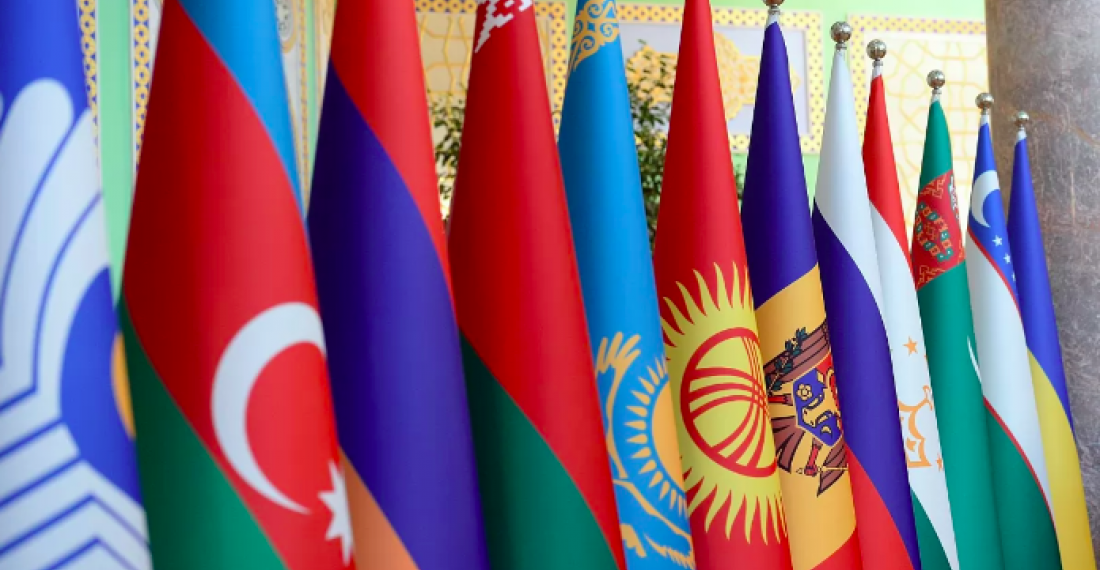Last week, the president of Azerbaijan, Ilham Aliyev, and the prime minister of Armenia, Nikol Pashinyan, spoke at the CIS Heads of State online meeting, expressing their views on Armenian-Azerbaijani relations, unresolved problems relating to Nagorno-Karabakh and the implementation of agreements reached in trilateral statements.
Aliyev
Aliyev began by thanking the president of Belarus, Alexander Lukashenko, for organising the summit. He referred to the current situation as a “post- conflict” period in which the “Nagorno-Karabakh conflict has been consigned to history”. Additionally, he noted “the special role of the President of the Russian Federation, Vladimir Vladimirovich Putin, in the cessation of hostilities, which made it possible for both sides to avoid thousands of casualties”.
With regard to the opening of transport communications –an issue which Pashinyan also touched upon – he remarked that the working group to resolve any issues had been established co-chaired by the Deputy Prime Ministers of Russia, Azerbaijan and Armenia.
Aliyev stated that the main problems currently facing Azerbaijan related to the destruction of infrastructure, historical monuments, and the environment within the territories reclaimed by Azerbaijan in last year’s war. “In the liberated territories, almost all buildings and historical monuments have been destroyed over the years of almost 30-year occupation. Of the 67 mosques in the liberated territories, 65 have been completely destroyed.” He also noted the ongoing issue of demining, and the problems posed by the inaccuracy of current landmine maps.
He concluded by stating that “we are ready to start negotiations with Armenia on the delimitation of the border, subject to mutual recognition of territorial integrity, and we are also ready to start negotiations on a peace agreement with Armenia”.
Pashinyan
The prime minister of Armenia began his speech by highlighting that the region was on the verge of important transformations, but warned that it was only through the manifestation of political will and wisdom that peace and stability could be achieved. He said this was an end his government was determined to achieve, adding that “we have a clear idea of how to achieve this goal. Dialogue and gradual overcoming of the atmosphere of enmity, unfortunately, existing in our region, unblocking of all transport and economic communications is the only way”.
He then touched upon the implementation of the agreements reached in the trilateral statements, with a particular focus on the unblocking of communications in the region. To this end, he said that “Armenia will receive a railway and automobile connection with Russia through the territory of Azerbaijan, as well as a railway connection with Iran, and Azerbaijan – a connection with Nakhichevan through the territory of Armenia”. He also re-iterated that Azerbaijan had not fulfilled its obligations by detaining Armenian prisoners of war.
On the delimitation of borders, Pashinyan said that Armenia was ready to start defining borders with Azerbaijan and the support of Russia and other international partners, though he noted how challenging this might be: “it is difficult to imagine work on the demarcation and delimitation of borders, which were recently violated by Azerbaijan and where there is regular shooting”.
Additionally, he mentioned the importance of signing a peace treaty under the auspices of the OSCE Minsk group Co-chairs, commenting that the recent meeting between Armenia and Azerbaijan’s foreign ministers had been of significant importance.
Pashinyan also expressed his willingness to start the normalisation of relations with Turkey, adding that Russia had expressed its readiness to support the process.



